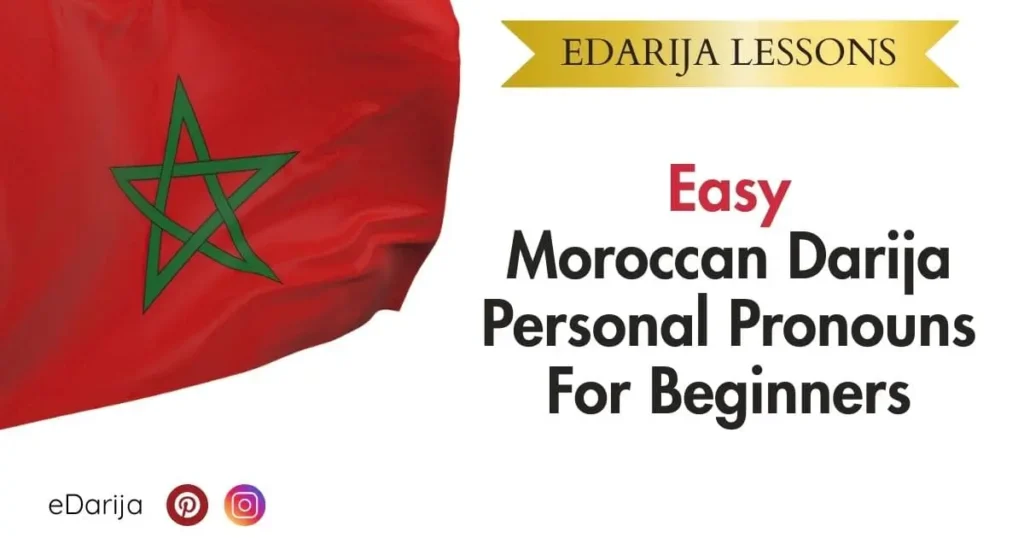
Why Learn Moroccan Darija Personal Pronouns?
If you’re starting your journey with Moroccan Darija, one of the most important first steps is learning how to say I, You, He, She, We, and They. These are called personal pronouns, and they are the foundation of every conversation. Without them, you can’t form sentences or express even the simplest ideas.
Think about it, every time you introduce yourself, talk about your family, or ask someone how they are, you’re using pronouns. In English, we say I am fine, She is happy, or They are here. In Darija (Moroccan Arabic), we also use pronouns every single day.
In this lesson, you’ll learn:
- The full list of Moroccan Darija personal pronouns (written in Latin letters, not Arabic script).
- How to use them correctly in real-life conversations.
- Examples you can start practicing today.
- Common mistakes to avoid as a beginner.
By the end of this article, you’ll be ready to build your first Darija sentences with confidence.
👉 If you’d like more lessons after this one, check our full Moroccan Darija Lessons page.
What Are Personal Pronouns in Moroccan Darija?
In simple terms, personal pronouns are short words we use instead of repeating names. Instead of saying Ahmed is happy. Ahmed is here, we say He is happy. He is here.
In Moroccan Darija, pronouns work the same way. They change depending on whether you’re talking about yourself (I), someone else (he, she), or a group (we, they).
There are two main categories:
- Singular pronouns → talking about one person (I, You, He, She).
- Plural pronouns → talking about more than one person (We, You plural, They).
The List of Moroccan Darija Personal Pronouns
Here’s a simple table showing the Darija pronouns, their English equivalent, and an example sentence.
| English Pronoun | Darija (Latin letters) | Example in Darija | Translation |
|---|---|---|---|
| I | Ana | Ana bghit lma | I want water |
| You (male) | Nta | Nta mzyan | You are good (male) |
| You (female) | Nti | Nti zwina | You are beautiful (female) |
| He | Howa | Howa mzyan | He is good |
| She | Hia | Hia zwina | She is beautiful |
| We | Hna | Hna f Casablanca | We are in Casablanca |
| You (plural) | Ntuma | Ntuma mzyanin | You (all) are good |
| They | Huma | Huma f lmdrasa | They are at school |
💡 Notice how Darija makes a distinction between You (male) and You (female) when speaking to one person. This is very important in Moroccan Arabic.
How to Use Darija Pronouns in Real Conversations
Learning the list is one thing, but using them naturally is another. Let’s look at how these pronouns fit into everyday Darija conversations.
1. Using “I” (Ana)
- Ana smiti Sara → My name is Sara.
- Ana kanskun f Rabat → I live in Rabat.
2. Talking to “You” (Nta/Nti)
- Nta mzyan? → Are you good? (to a male)
- Nti zwina bzaf → You are very beautiful (to a female).
3. Talking About “He/She” (Howa/Hia)
- Howa sahbi → He is my friend.
- Hia katl3ab tennis → She is playing tennis.
4. Speaking as “We” (Hna)
- Hna mgharba → We are Moroccans.
- Hna bghina nshufu lfilm → We want to watch the movie.
5. Addressing “You Plural” (Ntuma)
- Ntuma fin ghadin? → Where are you (all) going?
- Wash Ntuma talaba? → Are you students?
6. Referring to “They” (Huma)
- Huma f souq → They are at the market.
- Huma kayaklou → They are eating.
Want to hear how these words are pronounced and learn even more vocabulary?
👉 Follow us on Instagram and Pinterest where we share daily Darija words, audio clips, and tips to boost your learning!
Common Mistakes Beginners Make
When learning Darija pronouns, learners often make small but important mistakes. Here are a few to watch out for:
- Mixing Nta and Nti → Remember, nta is for men, nti is for women.
- Forgetting the plural “you” → In Darija, “ntuma” is used when addressing more than one person.
- Dropping the pronoun too often → Unlike standard Arabic, Darija usually keeps pronouns in daily speech.
Why Learning Pronouns Matters
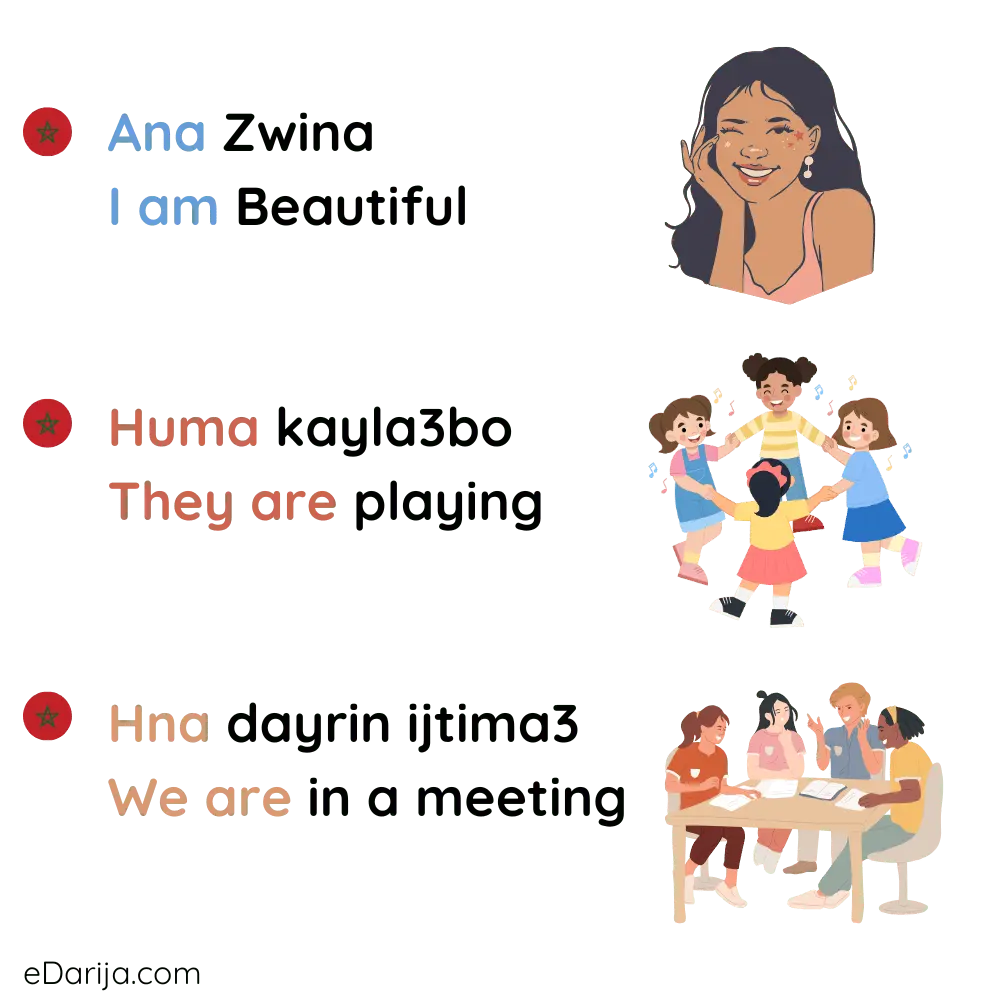
Mastering personal pronouns is the very first step to speaking Moroccan Darija with confidence. Once you know them, you can:
- Introduce yourself and others.
- Talk about people in your family.
- Ask and answer simple questions.
- Start building sentences with verbs (e.g., Ana kanakol = I eat, Ntuma katakulou = You all eat).
👉 Ready to keep going? Explore more in our Moroccan Darija Lessons.
Darija Personal Pronouns Quiz
Test your Knowledge
Explore More Learning Resources
At eDarija, we make learning Moroccan Arabic simple and practical. If you enjoyed this lesson on pronouns, you’ll love:
- 📘 Our free Darija Lessons for beginners and advanced learners.
- 📚 Our Darija eBooks shop with downloadable guides and exercises.
Start small, practice daily, and soon Darija will feel natural to you.
Conclusion
Learning Moroccan Darija personal pronouns is like getting the keys to unlock the language. With just a handful of words—ana, nta, nti, howa, hia, hna, ntuma, huma—you can already build full sentences and join conversations.
The more you practice, the faster you’ll improve. Use these pronouns in daily life: when introducing yourself, asking about friends, or even while thinking to yourself in Darija.
Language learning is a journey, and this is your first successful step.
Keep going—you’ve got this!
👉 Don’t stop here. Continue your learning with our Lessons and grab helpful Darija eBooks to practice anytime.
FAQs about Moroccan Darija Personal Pronouns
What are the personal pronouns in Moroccan Darija?
The main personal pronouns are: Ana (I), Nta (You male), Nti (You female), Howa (He), Hia (She), Hna (We), Ntuma (You plural), Huma (They).
Do pronouns in Darija change with verbs?
Yes. Just like in English, pronouns connect with verbs. For example:
Ana kanakol → I eat
Nti katakli → You (female) eat
The pronoun stays, but the verb changes depending on the subject.
3. Is there a difference between “nta” and “nti”?
Yes. Nta is used when speaking to a man, and Nti is used when speaking to a woman. This distinction is very important in Darija.
4. Do Moroccans always use pronouns in daily speech?
Most of the time, yes. In Moroccan Darija, pronouns are usually spoken clearly with verbs, unlike some other Arabic dialects where they are often dropped.

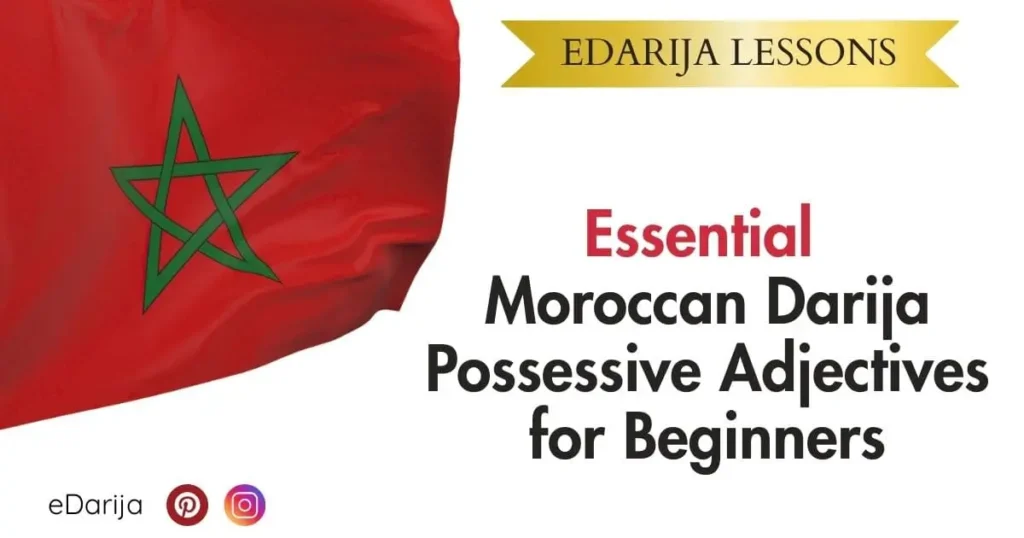
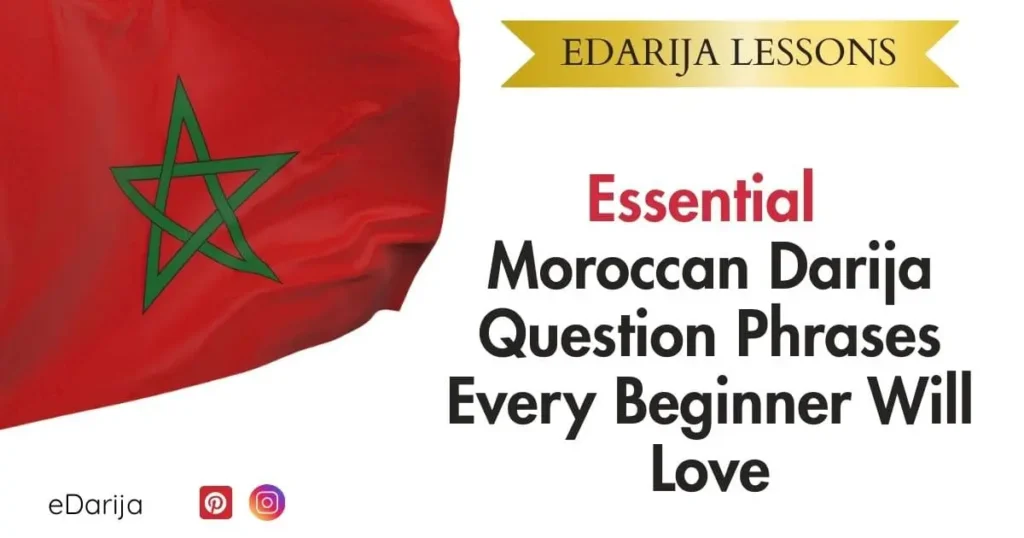
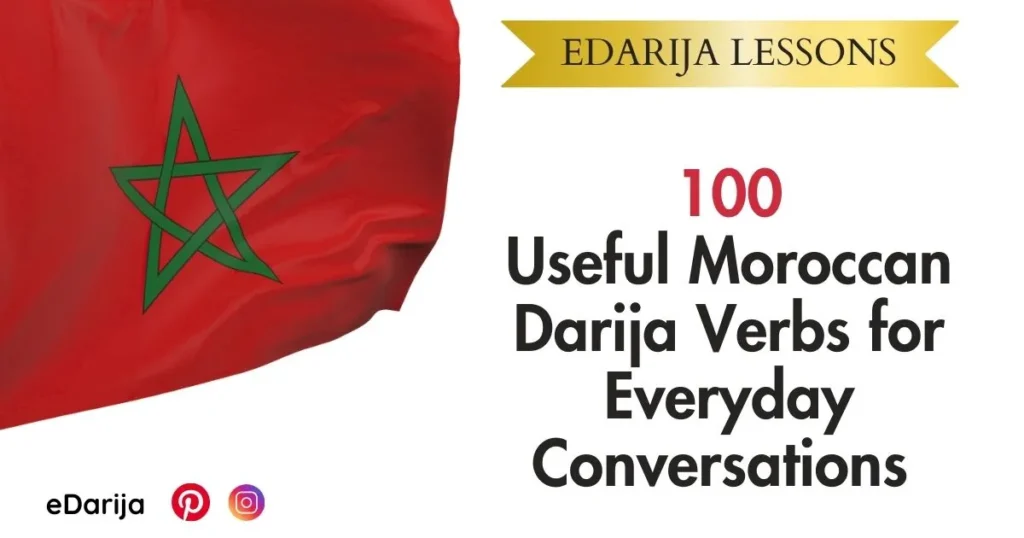
Pingback: Essential Moroccan Darija Possessive Adjectives for Beginners
Pingback: 100 Useful Moroccan Darija Verbs for Everyday Conversations
Pingback: 7 Essential Moroccan Darija Question Phrases Every Beginner Will Love